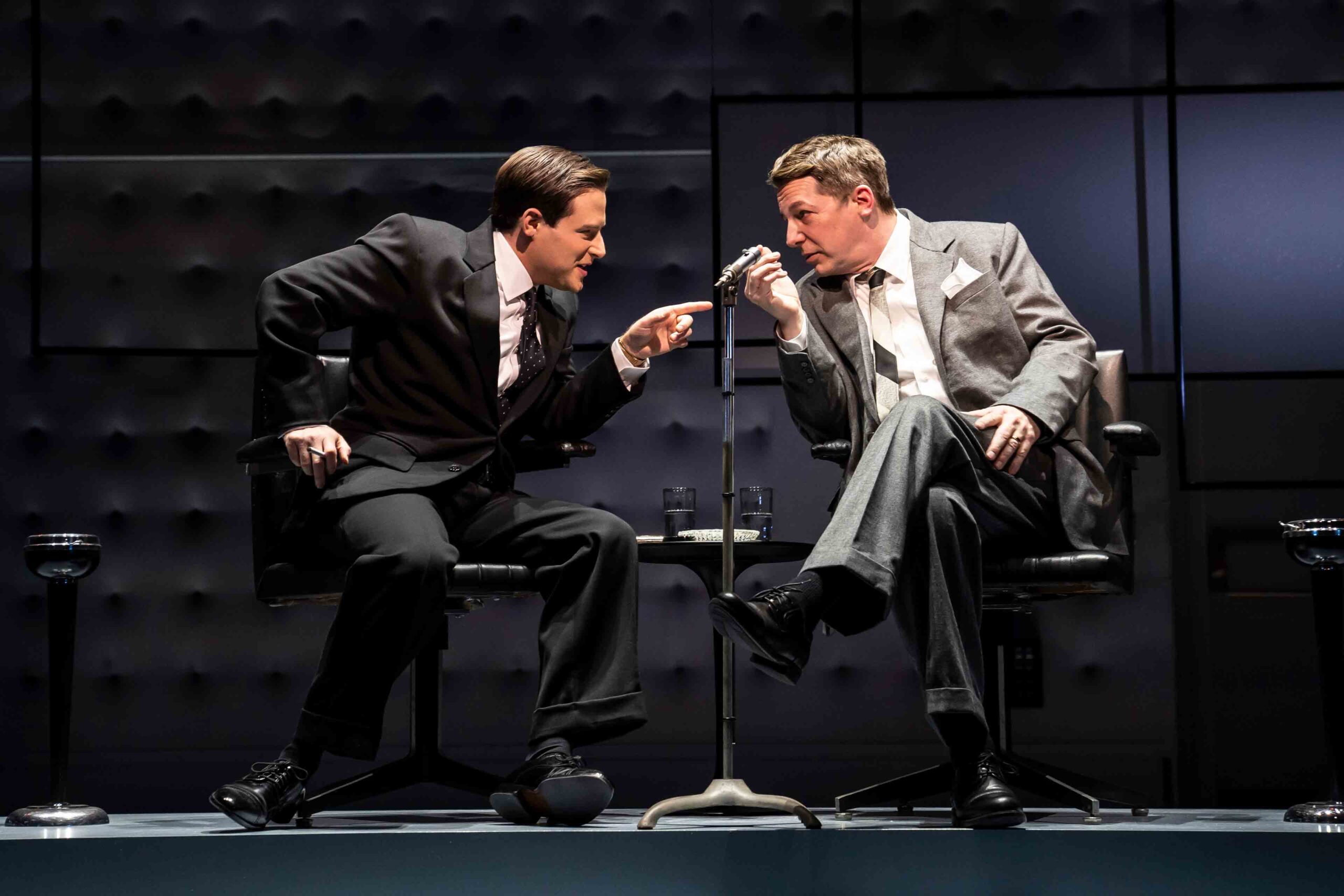 |
| Production photo uncredited |
I'm always leery when we go to see a show that stars a famous actor (or more than one), unless I know that person has real stage-acting chops. TV actors scare me the most, because I seldom watch TV, meaning I'm unlikely to know anything about them at all.
Such was the case with Good Night, Oscar, where the lead actor, Sean Hayes, is apparently a very well known TV actor (who also has numerous solid stage credits). I just know nothing about him. The story, written by Doug Wright, on the other hand, has a lot of familiarity for me. My mother was a big jazz fan, a pianist, and a huge fan of George Gershwin's music. And the "Oscar" in the title is Oscar Levant, a close friend and colleague of Gershwin's who was known as one of the foremost interpreters of his piano music. Mom had recordings and told stories. I listened. So I was intrigued by the premise of this show.
The Play
So aside from being a virtuoso pianist, known for playing Gershwin, Levant was also widely known to be a raconteur, a favorite guest/sparring partner for pioneering late-night TV host Jack Paar, who kind of invented the late-night TV shows that we still know today (specifically The Tonight Show, which he hosted before Johnny Carson). What was less known about Levant was that he was quite severely mentally ill, addicted to prescription pills, and sometimes committed to mental institutions.
The play centers around Paar moving The Tonight Show from its usual home in New York City to Hollywood for a week in 1958, where he wants his first guest to be Levant. Unknown to him, Levant has been committed by his wife after a serious breakdown, but she angles to get him a four-hour pass under false pretenses so he can appear on the show.
The play then shows the contretemps over whether he will show up, whether he should be allowed to go on, etc. And when he does show up, we get a view of a very difficult, but seriously funny, man.
Within Levant's dialogue and dissociative interior monologues and hallucinations, we get to see the complications of his relationship with Gershwin, among many other things.
It's really quite a fascinating play about some fascinating characters, based on true events. Right up my alley!
The Production
The overall production is spot-on with its recreation of the late 1950s, from the dark wood paneling of the buildings and the style of the furnishings to the fashions on the actors. Paar (Ben Rappaport) is impeccably kitted out in a tailored suit, and network president Bob Sarnoff (Peter Grosz) sports a great pinstriped power suit. June Levant (Oscar's wife, played by Emily Bergl) wears top-of-the line couture of the time. And Levant (Sean Hayes) manages to make a high-quality suit look frumpy. And there is much smoking, of course. The effect is really great.
Really solid acting from all of the actors mentioned above, with good support from Marchánt Davis as Alvin, the orderly from the institution sent to oversee Levant on his furlough and comic relief from the talkative, star-struck boss's nephew Max (Alex Wyse).
Without saying too much, one of the highlights comes at the end when we finally get to hear Levant play Gershwin, and it turns out Sean Hayes can seriously play the piano. Truly impressive imitation of Levant's style.
Bottom Line
This is a terrific and interesting play, also very funny at times, but also a pretty intense look at a very disturbed, complicated character. We talked about various aspects of the play for a long time over dinner, and I would happily watch it again if I could. Hayes is totally deserving of his Tony nomination for best actor. The current run appears to go through August 27th at the Belasco Theatre in the heart of Times Square. Go. It's one of the best things I've seen on stage in quite a while!
No comments:
Post a Comment